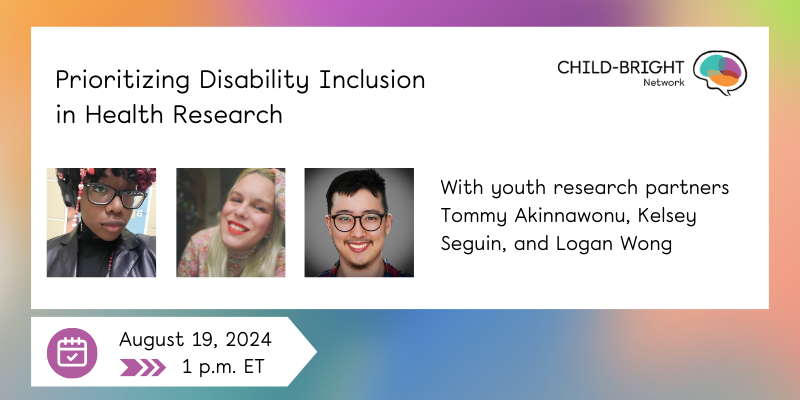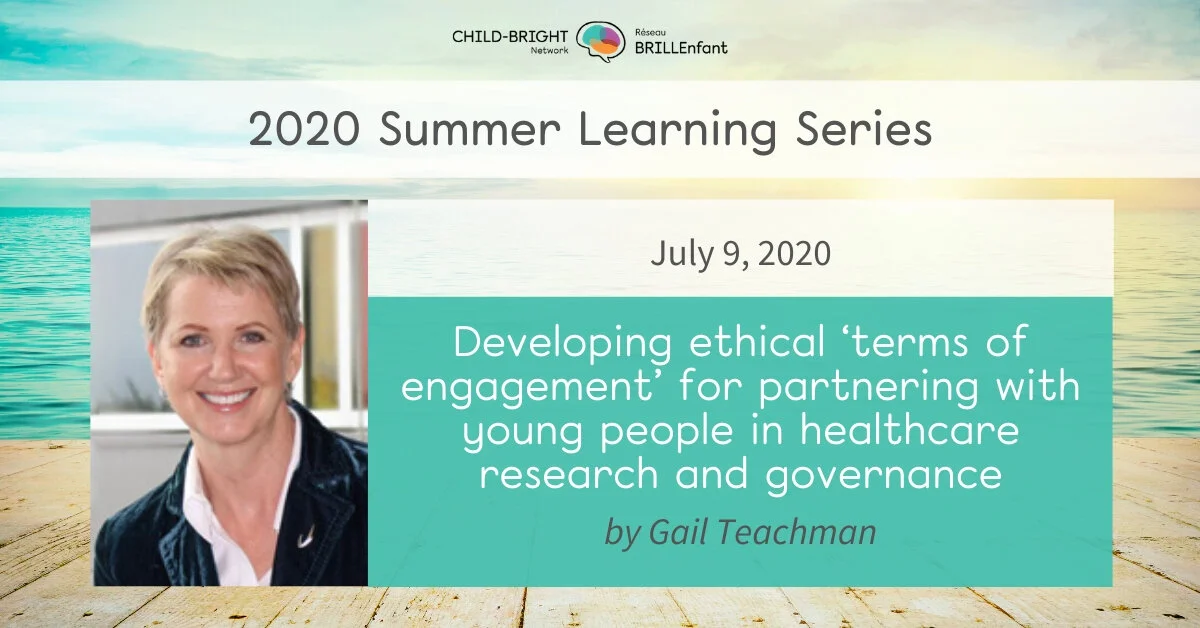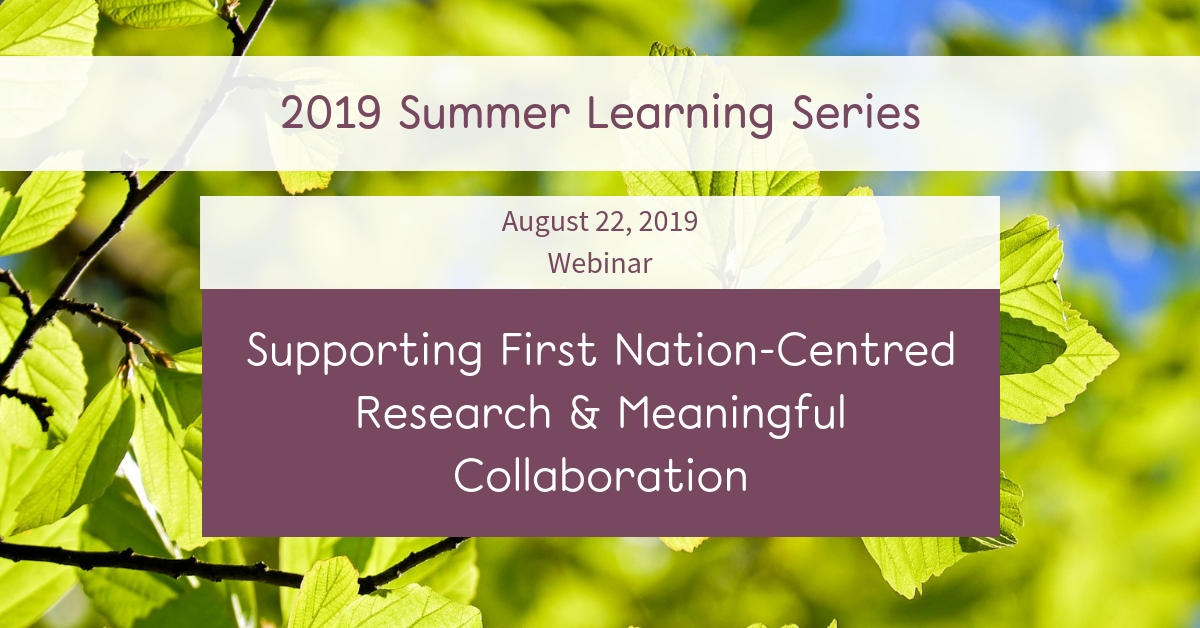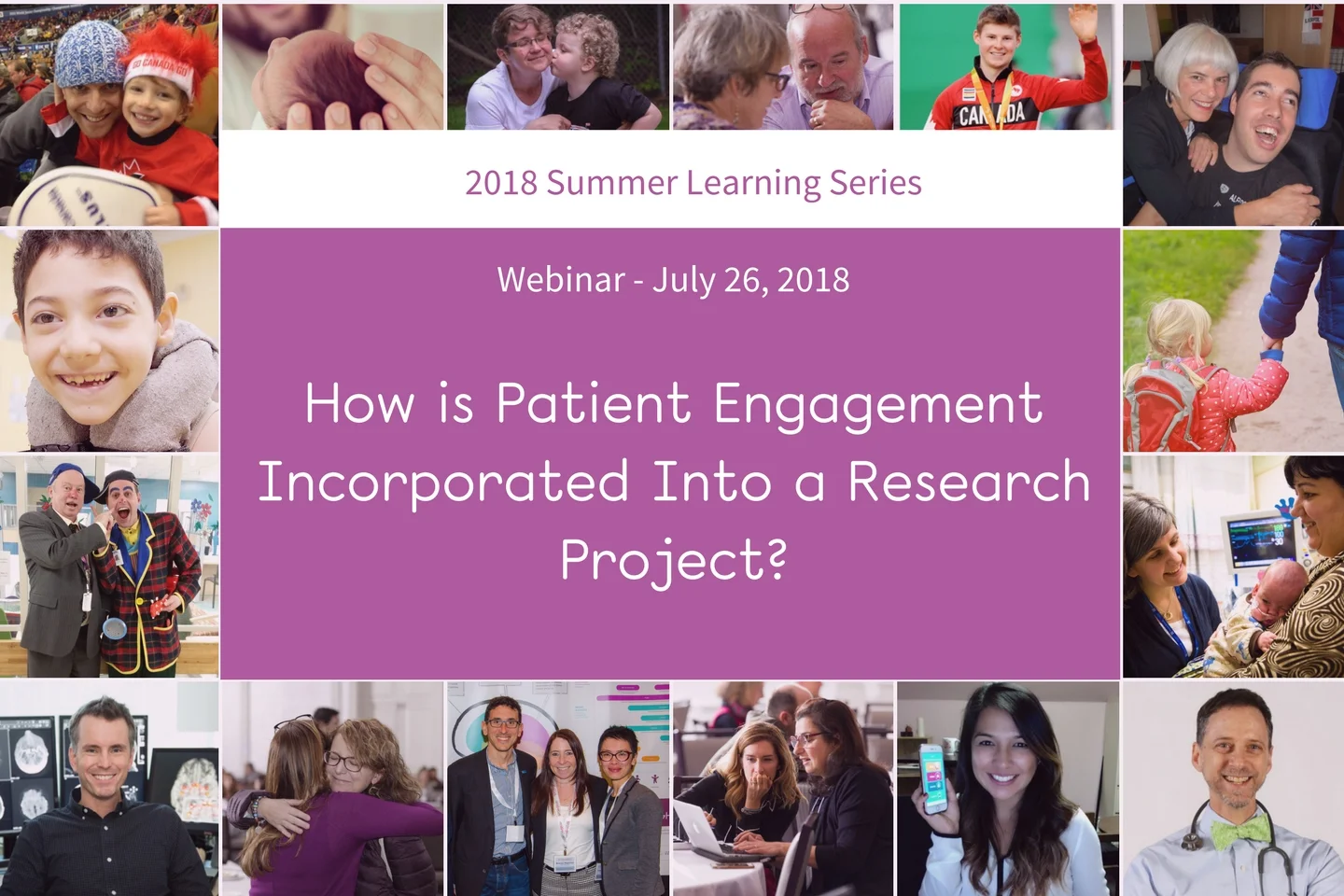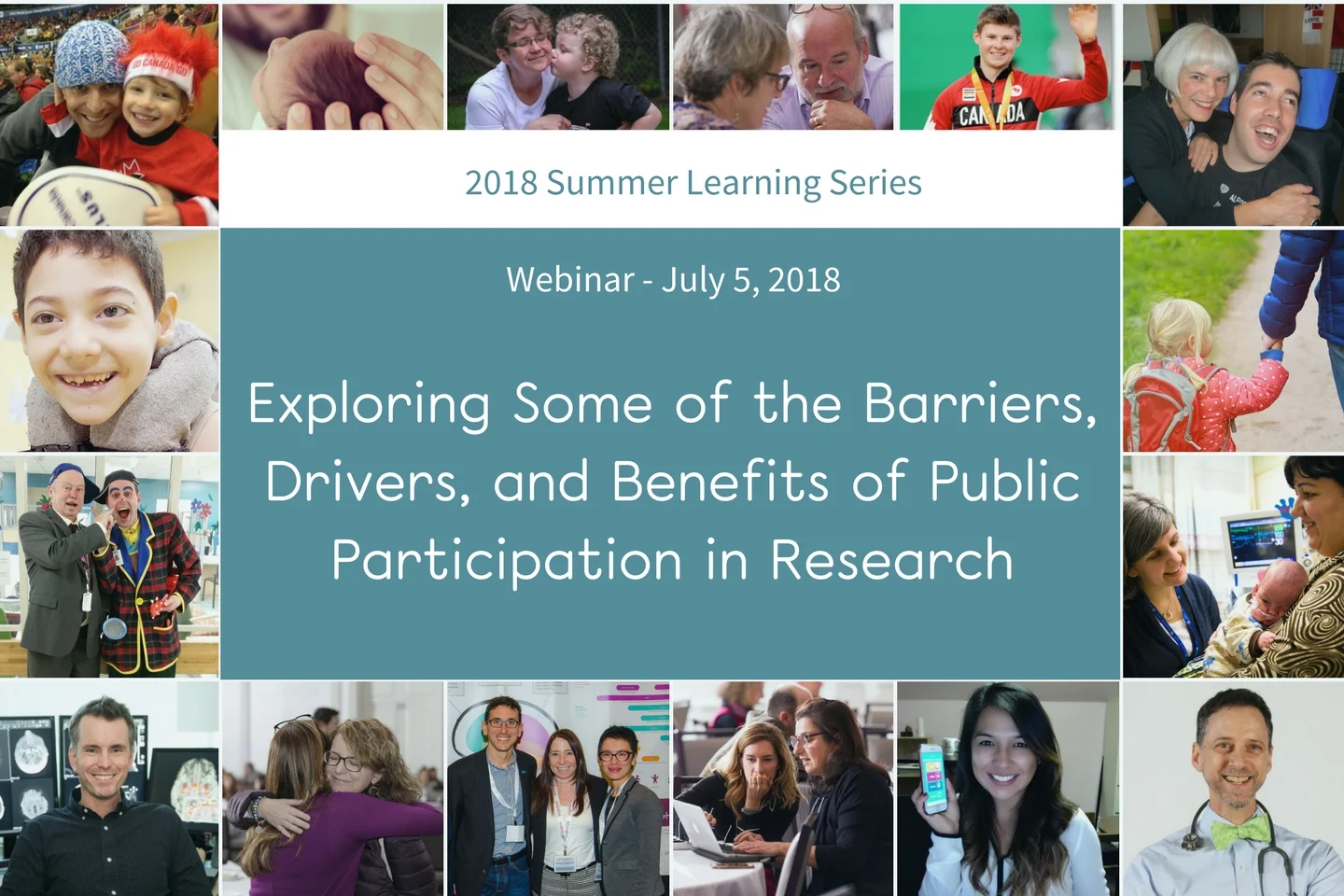When: Tuesday, July 21, 2020
Time: 11:30 a.m-1:00 p.m. EDT / 8:30-10:00 a.m. PDT
There is a growing body of evidence that shows that involving patients and their families in applied clinical research as patient research partners can enhance the relevance, quality, impact and utility of research findings. However, the literature describes a number of multifaceted and complex challenges that researchers and patient-partners face when partnering in the research process. Some of the core challenges described in the literature include:
Setting clear and realistic expectations for all parties
Patient research partners feeling empowered to provide meaningful input
Eliciting meaningful input
Addressing opposing views or opinions.
The underlying themes permeating these challenges are trust, reciprocity and communication. Existing online modules are helpful resources to teach the basic principles of research and the concept of patient-oriented research; however, given the complexity of these relational challenges, didactic and/or independent courses are not sufficient to ensure meaningful patient research partner engagement.
Research suggests that simulation is a powerful tool that allows learners the opportunity to recreate challenging situations within the healthcare environment and to learn from these experiences in a safe and controlled setting. Simulations use ‘devices, trained persons, lifelike virtual environments, and contrived social situations to mimic problems, events or conditions that arise in professional encounters’. During and directly after a simulation, learners are guided through rich discussions and have the opportunity to react to, rethink and reshape their learning.
Given the above, our team has leveraged a simulation-based, co-designed approach to develop a suite of four simulations for research teams and patients and caregivers to learn how to support each other through some of the most complex and challenging situations associated with patient engagement in research. These simulations were co-developed with youth with disabilities, parents of children with disabilities, trainees, research staff, and scientists.
During this webinar we will endeavour to:
Introduce the audience to the use of simulation as a powerful tool that allows learners the opportunity to recreate challenging situations and learn from these experiences in a safe and controlled environment.
Share our approach to evaluating how youth, parent/primary caregivers, trainees, clinicians, and researchers construct their experience of co-building collaborative research simulations.
Demonstrate and debrief two research engagement simulations: one through prerecorded video; and one live with standardize patients (actors) engaged in real time.
Share our approach to evaluating how youth, parent/primary caregivers, trainees, clinicians, and researchers construct their experience of co-building collaborative research simulations.
Learning Objectives:
Understand the value of simulation as a learning tool in general and how it can be leveraged to support the learning of researchers, research staff, trainees and patients partnering in research.
Experience two simulations focused on the challenging and complex aspects of research partnership including but not limited to: identifying a research partner, setting expectations; negotiating and including different perspectives and priorities; constructing appropriate knowledge translation activities; demonstrating the value of lived experience; and managing scope creep.
Prepare to apply the basic principles of simulation to facilitate two of the research simulations created to support research engagement at your own organization.
This will be an interactive session and participants will be asked to engage in dialogue and step into a simulation virtually. Active participation is voluntary but encouraged.
Facilitators:
Kathryn Parker, Senior Director, Academic Affairs and Simulation Lead, Teaching and Learning, Holland Bloorview Kids Rehabilitation Hospital
Michelle Phoenix, Assistant Professor, CanChild and School of Rehabilitation Science McMaster University. Adjunct scientist Bloorview Research Institute
Nadia Tanel, Director, Research Growth and Expansion, Bloorview Research Institute, Holland Bloorview Kids Rehabilitation Hospital




